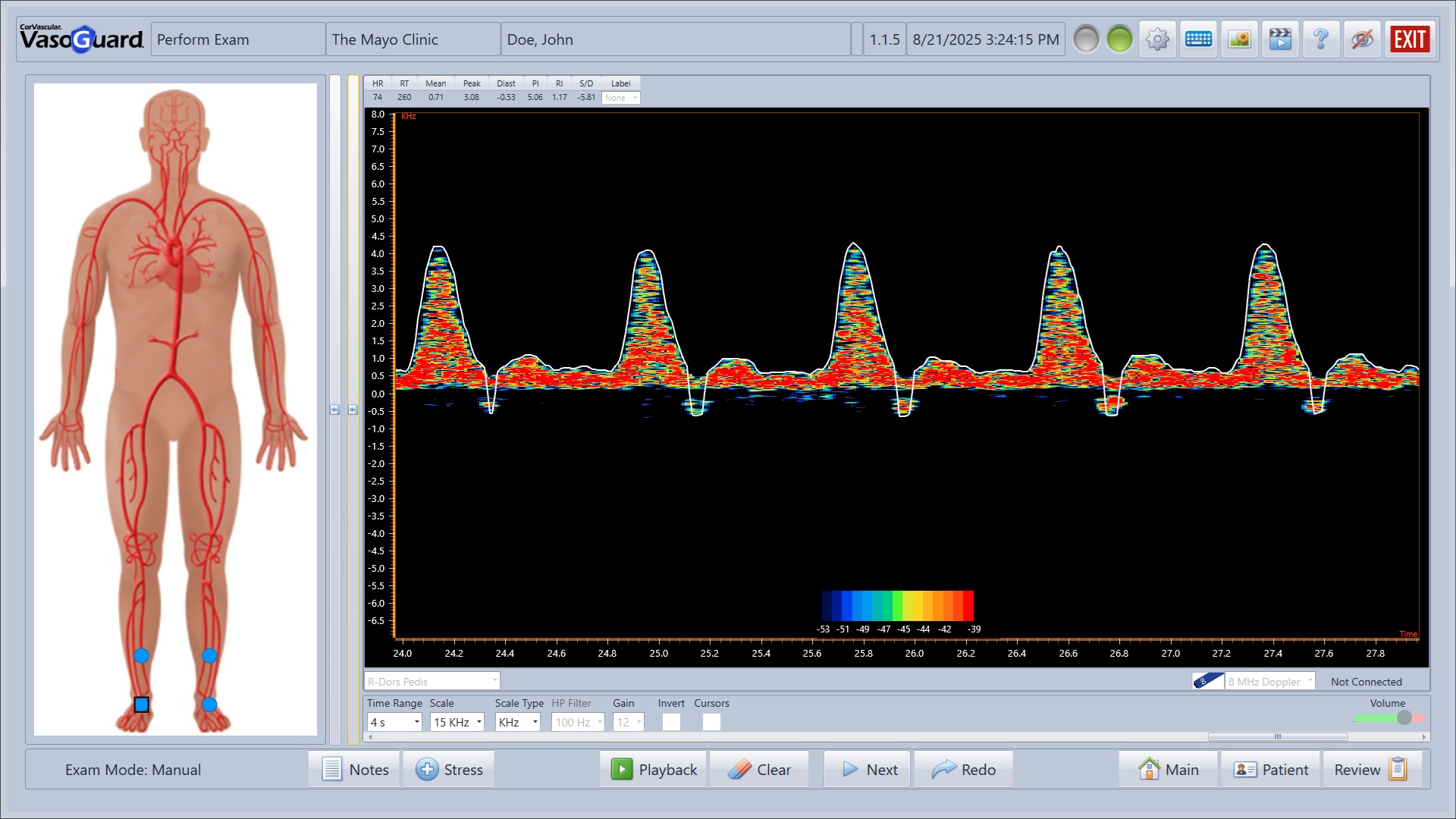Doppler Measurements
Doppler Measurements are a fundamental tool in vascular diagnostics, using sound waves to assess blood flow velocity and direction. This non-invasive technique provides real-time insights into vascular health and helps identify blockages or abnormalities in blood vessels.

Doppler Measurements utilize the Doppler effect to detect and measure the movement of blood within vessels. By analyzing the frequency shift of ultrasound waves reflected from moving blood cells, clinicians can determine the speed and direction of blood flow.
- Non-invasive and painless
- Provides both qualitative and quantitative data
- Essential for diagnosing vascular diseases
A Doppler probe emits high-frequency sound waves that bounce off moving blood cells. The reflected waves are analyzed to calculate blood flow velocity and direction. This information is displayed as waveforms and can be used to assess vessel patency and detect abnormalities.
- Handheld or integrated Doppler probes
- Real-time waveform display
- Automated data capture and analysis
Doppler Measurements are invaluable for:
- Detecting arterial and venous blockages
- Assessing blood flow in grafts and stents
- Guiding interventions and monitoring outcomes
- Evaluating vascular health in various clinical scenarios
The Doppler waveform provides critical information about blood flow characteristics:
- Peak systolic velocity (PSV)
- End diastolic velocity (EDV)
- Resistive index (RI)
- Pulsatility index (PI)
VasoGuard systems feature advanced Doppler probes and intuitive software for seamless integration into vascular testing workflows. Real-time waveforms, automated measurements, and comprehensive data export ensure accurate and efficient assessments.
- High-sensitivity Doppler technology
- Automated waveform analysis
- Easy-to-use interface for clinicians
- Comprehensive reporting and data management